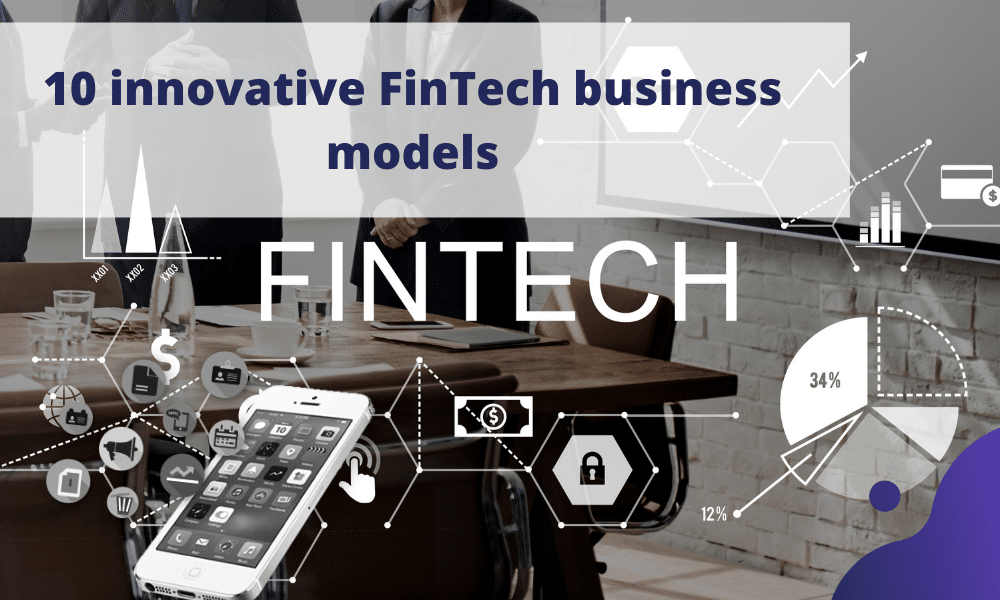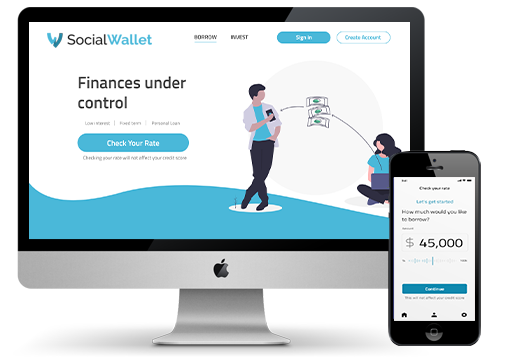The financial industry has witnessed one of the biggest transformations in terms of technology over the past few years. In just five years, we have seen customers embrace this digital shift and concurrently, traditional banks and conventional financial sectors have fallen prey to dwindling popularity.
In this post, we have listed 10 innovative FinTech business models that have taken the financial world by storm. Let’s take a look:
1. Alternative credit scoring
A borrower needs a good credit score to get approved for the loan at the bank. However, tons of loan applications are being rejected by credit unions and banks every day. Some do not qualify for the minimal income, while others have a poor credit score. FinTech has come up with a new innovation in this field. The alternative credit scoring promotes flexible and smooth criteria for lending money to the borrowers. Instead of relying on the credit score, companies like Nova Credit will consider social signals to understand the risks better.
2. Alternative insurance underwriting
The same life insurance premium policy for people of the same age, height, and weight has become an outdated approach. Two people might have the same annual earnings, race, and health status. However, one can be a fitness lover and the other might lead a sedentary life. The latter is highly prone to obesity, cardiovascular diseases, and diabetes. Unfortunately, insurance companies never considered factors that can’t be quantified.
A recent trend in the FinTech industry is alternative insurance underwriting—a mechanism that involves social signals, lifestyle, and other qualitative signals when identifying premium risks. Insurance companies use AI algorithms and self-learning programs to determine whether two candidates with different lifestyles should get the same coverage.
3. Transaction Delivery
The information about customers’ spending, income, and savings plays a pivotal role in decision making. This data can be used for generating insights into the upcoming financial trends, users’ ability to invest in premiums, their savings, and investment potential. The role of Fintech in this space is that it has launched various free transaction delivery apps that collect customers’ data, which is then used for identifying their investment and saving potential. It is a commission-based model.
4. Peer-to-peer lending
Deciding whether or not the individual is capable of repaying the loan with interest is pretty challenging for a lender. That’s the reason why banks decline loan requests. Peer-to-peer lending lowers this risk. It helps investors get better returns without having to lend money to the pre-approved borrowers.
iScript Social Wallet is a great platform for peer-to-peer lending. It connects lenders with borrowers. It has a clean interface, allowing you to manage commission, interest rate, loan requests, listings, and other elements smoothly. Peer-to-peer lending is a great option for lenders looking for a better return and minimized risk.
5. Small ticket loans
The criterion for obtaining loans from banks and financial institutions is pretty hectic. That’s why banks don’t consider smaller loans. There is little a bank earns from such loans, while they end up paying a large amount on the documentation and approval process.
FinTech has launched the BNPL (buy now pay later) concept that enables customers to buy products from eCommerce stores and pay either in installments or a lump sum later. They don’t need to submit credit card details or complete authentication forms for being considered for smaller purchases. The best part is these loans can be paid without interest.
So, how do these companies make money then? Well, you don’t get it for free! They share your data with the Original Equipment Manufacturer in return for providing you with an interest-free loan on purchases.
6. Payment gateways
This is the most innovative FinTech model for businesses and customers. A payment gateway enables you to make payments for your purchases on the merchant’s website. Earlier, banks would charge a hefty fee for processing these transactions. Now that FinTech is integrating multiple payment methods into a single system, it’s possible for businesses and customers to complete transactions in simple clicks without paying a processing fee. Stripe and Alipay are the best examples.
7. Digital wallets
The demand for digital wallets has skyrocketed. Ever since businesses started accepting virtual money, customers have stopped carrying cash and credit cards. The plastic money is out of the picture now. They can load virtual money into their digital wallet and make payments both offline and online in a few clicks.
8. Asset Management
Gone are the days when trading for free wasn’t an option. Investment platforms like Robinhood have enabled investors to buy and sell shares without paying a commission. However, you have to share data in exchange for this offer. This data is sent to the popular and frequent traders who use this information for establishing prices for their assets. This saves investors the cost of commission, which can be a huge saving for regular investors. However, some traders might cover this cost in the asset prices. They might raise the asset rates slightly to recover the commission fee.
9. Digital banking
While every bank supports digital banking, some banks have adopted a complete online infrastructure. There is no physical setup, branches, or mail. You can apply for a loan, deposit money, open an account, and perform other banking operations like usual. The only exception is the brick-and-mortar setup. The savings on real estate and labor means huge savings for customers.
10. Digital Insurance
Like digital banking, the insurance sector is also going digital with the support of FinTech. As compared to traditional policies, insurance companies are now offering variable policies and premiums to individuals. They take qualitative and quantitative data into consideration when setting a premium price for the applicant. The result is cheaper coverage plans for customers. It also benefits insurance companies by providing them with plenty of business opportunities.
FinTech has evolved at a rapid pace in the past decade. From digital banking to peer-to-peer lending, the above FinTech models have brought an unbelievable transformation in the financial industry. If you are on the lookout for creating a similar FinTech application for your company. Please feel free to contact us on 312-423-6728 or compose an email containing your business requirements and budget to sales@iscripts.com receive the best digital solutions for your company.



